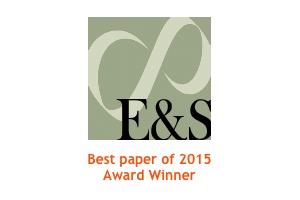Each year the journal Ecology & Society awards a prize that recognizes novel ways of doing research (more about the award). The award is made possible through the Foundation of Scientific Symbiosis. This year's recipients used videos posted on YouTubeTM to study illegal hunting practices and opinions in Brazil. "The thrill of the chase: uncovering illegal sport hunting in Brazil through YouTubeTM posts" by El Bizri and colleagues examined both the videos and online comments to learn more about which species are being hunted and when, as well as the hunter's views on and insights into management strategies.
Full citation:
El Bizri, H. R., T. Q. Morcatty, J. J. S. Lima, and J. Valsecchi. 2015. The thrill of the chase: uncovering illegal sport hunting in Brazil through YouTubeTM posts. Ecology and Society 20(3):30.
http://dx.doi.org/10.5751/ES-07882-200330
Abstract:
The impacts of unregulated sport hunting can severely affect populations of target game species. Because hunting in Brazil is limited by law, obtaining data on illegal sport hunting in this country is challenging. We used an unusual online resource, YouTubeTM, to detect the occurrence of sport hunting in Brazil, measure the impacts of the activity on the main Brazilian game species and biomes, evaluate the opinions of hunters and internet users on sport hunting, and discuss the need for policy interventions in wildlife conservation in this country. We found 383 videos related to Brazilian sport hunting on YouTubeTM, accounting for more than 15 million views. Most videos were produced in the Cerrado (Brazilian savannah) and approximately 70% of them depicted events of pursuit and killing of wild animals, especially lowland pacas (Cuniculus paca) and armadillos (Family Dasypodidae). Videos were posted primarily in July and December, coinciding with the two main Brazilian vacation periods. Furthermore, the shotguns identified on videos show that sport hunters expend large sums of money to undertake their hunts. These results indicate that Brazilian sport hunters are possibly wealthier urban residents who travel to rural areas to hunt, contrasting with previous hunting studies in the country. Most viewers declared themselves in favor of sport hunting in comments (n = 2893) and ratings (n = 36,570) of the videos. Discussions generated by comments suggest that Brazilian sport hunters employ several informal management strategies to maintain game species stocks for future hunting and intensely question the restrictions of Brazilian environmental policies. Our results demonstrate that solutions are needed for the regulation of sport hunting in Brazil. Government actions, whether to increase surveillance or legalize hunting programs, should take into account the opinions of sport hunters and their perceptions on hunting dynamics to support effective policy decisions on wildlife conservation in Brazil.

Keywords: Ecology and Society, hunting, YouTubeTM